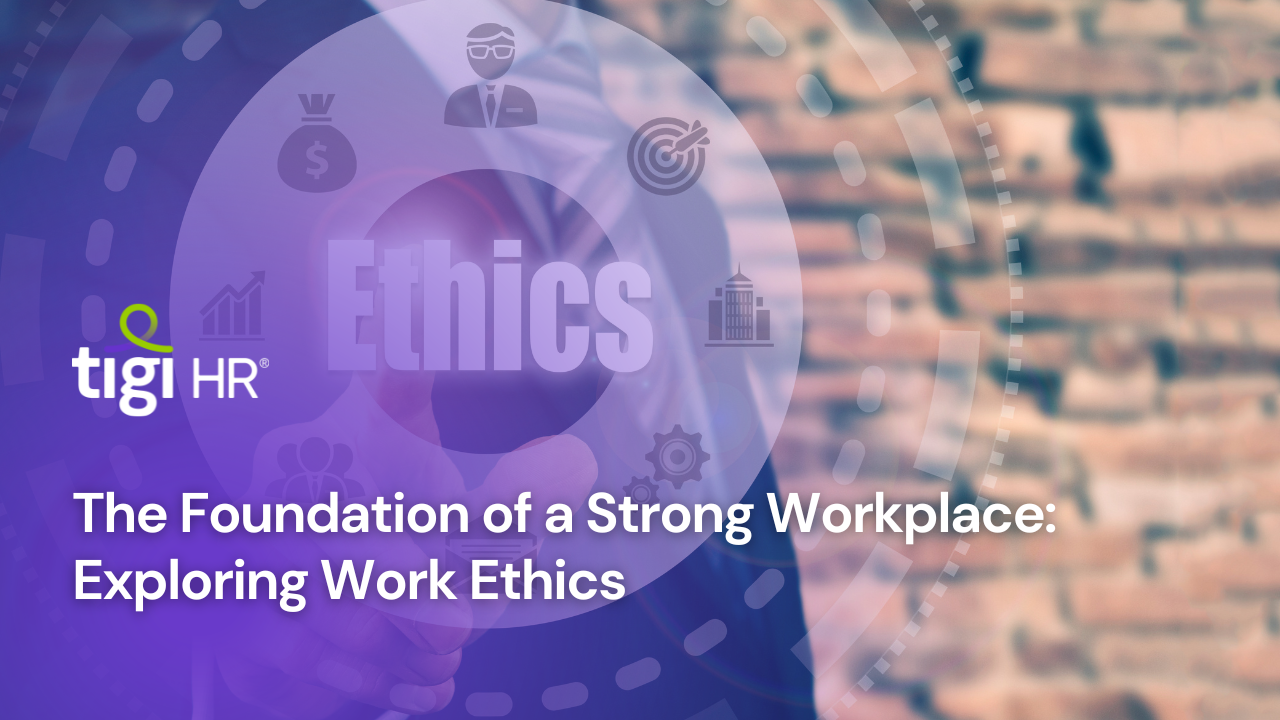In the dynamic landscape of modern workplaces, the significance of work ethics remains a cornerstone for success. A strong work ethic isn’t just about clocking in hours; it embodies values, behaviours, and attitudes that foster a productive and harmonious environment. Let’s delve into the profound impact of Strong Workplace and work ethics on organizational culture, employee performance, and overall success.
Understanding Work Ethics
Work ethics encompass a set of moral principles and values that guide individuals in their professional conduct. It’s the compass that influences how employees approach their responsibilities, interact with colleagues, and contribute to the company’s goals. Key elements of work ethics include:
1. Reliability and Accountability
Reliability forms the bedrock of work ethics. Being dependable and accountable for one’s actions builds trust within teams and with clients. According to a survey by the American Psychological Association, 48% of employees cited lack of trust in leadership as a significant factor contributing to their stress at work.
2. Professionalism
Maintaining a professional demeanor, respecting boundaries, and upholding standards of excellence characterizes professionalism. It elevates the workplace environment, fostering a culture of respect and integrity.
3. Initiative and Diligence
An employee’s willingness to take initiative and diligence in their work significantly impacts productivity. A report by Gallup revealed that engaged employees who demonstrate diligence are 21% more profitable for their organizations.
4. Adaptability and Flexibility
In today’s fast-paced world, adaptability is crucial. Employees with a strong work ethic are more likely to embrace change and adapt swiftly to evolving circumstances, contributing to the company’s agility.
Work Ethics and Organizational Culture
Work ethics are the building blocks of a company’s culture. A workplace where ethical standards are upheld fosters a positive atmosphere, leading to higher job satisfaction among employees. Statistics from the Society for Human Resource Management (SHRM) indicate that 89% of employees believe that a positive workplace culture is crucial to their overall experience at work.
A strong ethical foundation sets the tone for the entire organization, influencing decision-making processes and shaping how employees collaborate and communicate. It instills a sense of pride and commitment among employees, contributing to employee retention and reducing turnover rates.
Impact on Employee Performance
The impact of work ethics on individual performance is profound. Employees with a strong work ethic tend to be more engaged, motivated, and productive. Studies by the Harvard Business Review show that engaged employees are 87% less likely to leave their organizations.
Moreover, a work environment that values ethics encourages innovation and creativity. When employees feel supported and empowered, they are more likely to contribute innovative ideas and solutions, driving the company’s growth.
Promoting Work Ethics in the Workplace
1. Lead by Example
Leadership plays a pivotal role in shaping work ethics within an organization. When leaders embody strong work ethics, they set a standard for others to follow. A survey by the Ethics & Compliance Initiative revealed that employees are 67% more likely to report unethical behavior when they see leadership demonstrating ethical conduct.
2. Establish Clear Expectations
Clearly outlining expectations regarding work ethics and behaviors creates a roadmap for employees. This clarity helps in aligning individual and organizational goals, reducing ambiguity, and fostering a culture of accountability.
3. Provide Ongoing Training and Support
Continuous training and support programs reinforce the importance of work ethics. These programs educate employees about ethical standards, promote ethical decision-making, and provide resources for navigating ethical dilemmas.
4. Recognition and Reward Systems
Recognizing and rewarding employees who consistently demonstrate strong work ethics reinforces desired behaviors. Acknowledging ethical conduct publicly not only motivates the individual but also sets an example for others to emulate.
Challenges in Upholding Work Ethics
Despite the significance of work ethics, several challenges may hinder their establishment and maintenance in the Strong workplace:
1. Pressure to Prioritize Results Over Ethical Behavior
In a competitive environment, there might be instances where the pressure to achieve targets overshadows ethical considerations. This can lead to ethical lapses and compromises, posing risks to the organization’s reputation.
2. Diversity in Ethical Perspectives
Work ethics can vary based on cultural backgrounds and individual beliefs. Managing diverse perspectives and ensuring a cohesive ethical framework across the organization can be challenging.
3. Addressing Ethical Breaches
Dealing with ethical violations requires swift and decisive action. Failure to address breaches promptly can erode trust and credibility within the organization.
Conclusion on Strong Workplace
Work ethics are the bedrock upon which successful workplaces are built. They shape organizational culture, drive employee performance, and contribute to sustained growth. Emphasizing and nurturing work ethics not only benefits the organization’s bottom line but also cultivates a work environment where integrity, respect, and excellence thrive.
As businesses evolve, the importance of work ethics remains steadfast, guiding individuals and organizations toward greater success while fostering a workplace where values align with aspirations.
Remember, a strong work ethic isn’t just a checkbox on a list of desired qualities—it’s the heartbeat of a thriving workplace culture.





